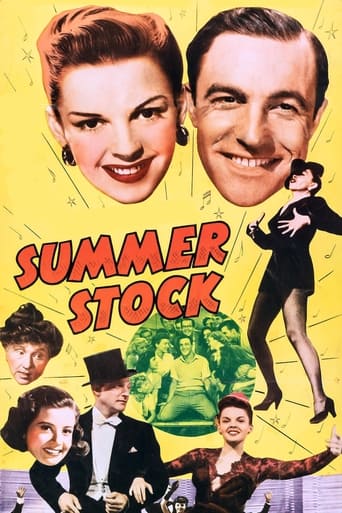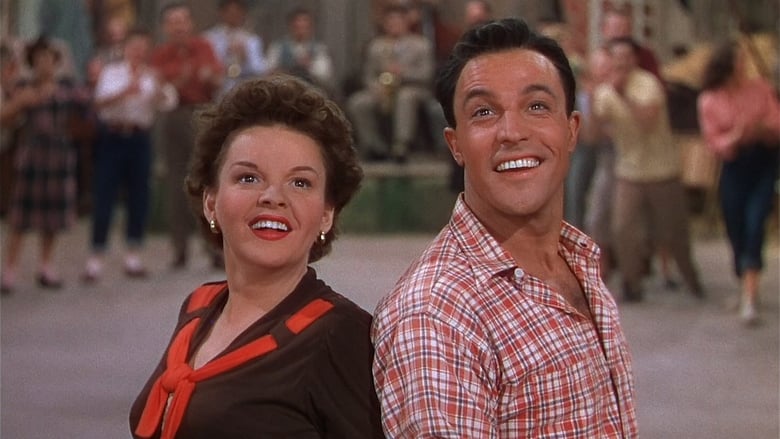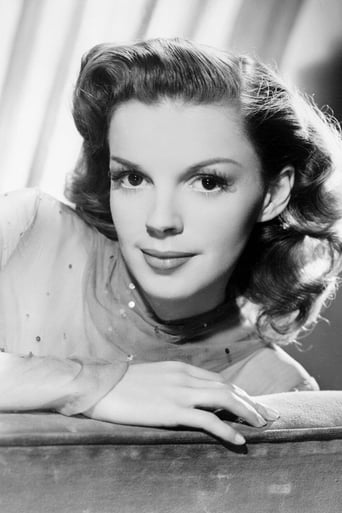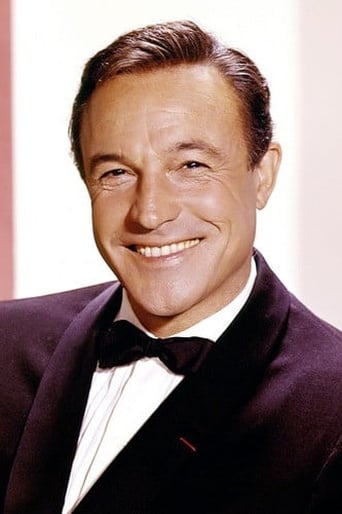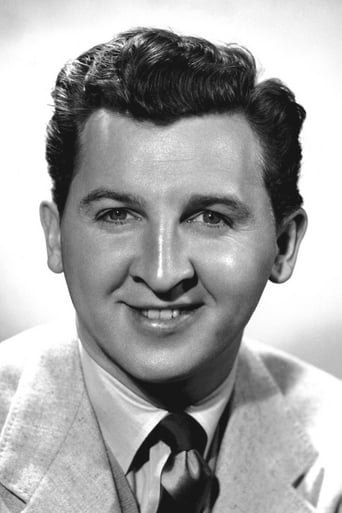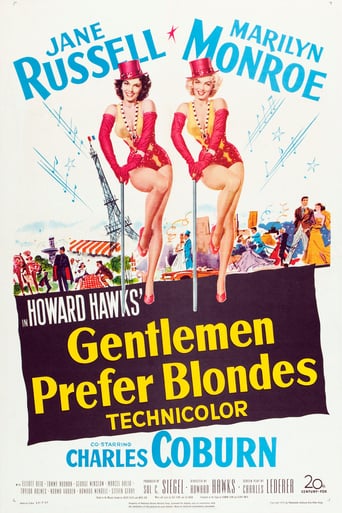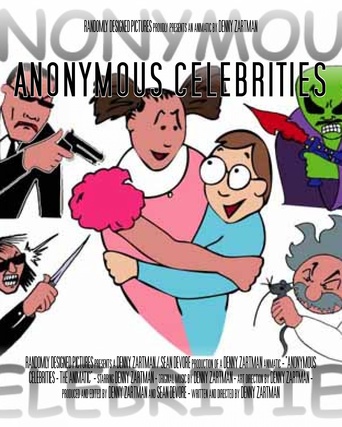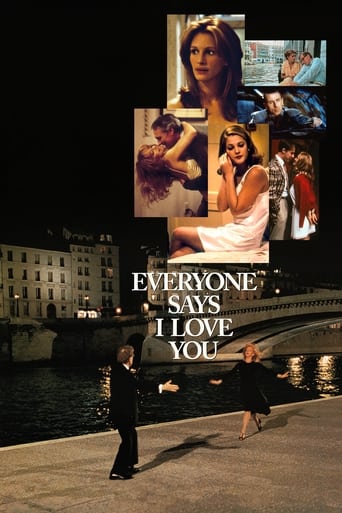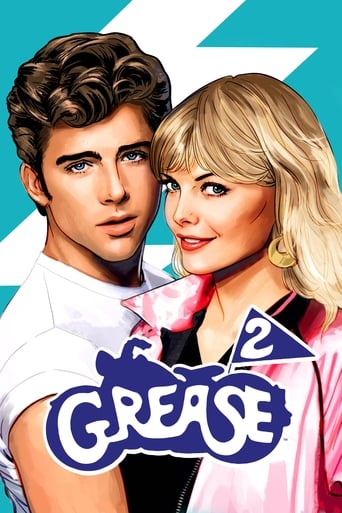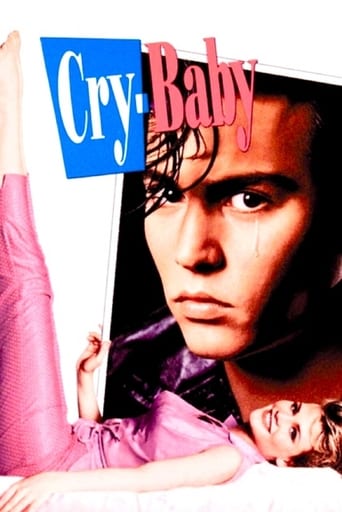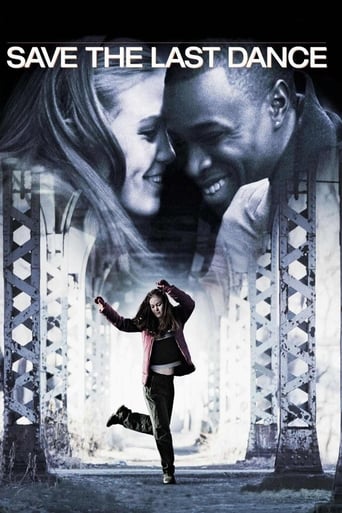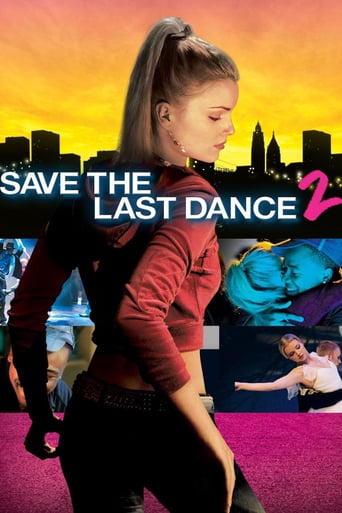Summer Stock (1950)
To Jane Falbury's New England farm comes a troup of actors to put up a show, invited by Jane's sister. At first reluctant she has them do farm chores in exchange for food. Her reluctance becomes attraction when she falls in love with the director, Joe, who happens to be her sister's fiance.
Watch Trailer
Cast


Similar titles
Reviews
Good concept, poorly executed.
Tells a fascinating and unsettling true story, and does so well, without pretending to have all the answers.
The plot isn't so bad, but the pace of storytelling is too slow which makes people bored. Certain moments are so obvious and unnecessary for the main plot. I would've fast-forwarded those moments if it was an online streaming. The ending looks like implying a sequel, not sure if this movie will get one
It is an exhilarating, distressing, funny and profound film, with one of the more memorable film scores in years,
Sadly, this is the last film before MGM fired Judy Garland. Its sad that her life was getting shaky around this time due to the toll her drug addiction was having on her. And I think it's even more sad that it was never Judy's fault that she got addicted to pills in the first place since it was MGM and Judy's mother that forced her to start and to keep taking these pills years earlier. They made her take these addictive stimulants so she could keep working long energetic hours at the studio. Then she became addicted to barbiturates cause the stimulants gave her insomnia. She and the other MGM stars were given some barbiturate pills half hour before bed, then fell asleep, then got woken up only 4 hours later and given their first stimulants of the day, a little breakfast (they were never allowed to eat that much so to keep their weight down), then back to work. Judy worked such long hours, slept those short 4 hour nights, and ate such a low calorie diet for so many years, that it all had taken such a toll on her by this time period, around 1950. And she wasn't as up to scratch at work anymore and was missing work all the time. That's why MGM fired her. Its all so unfair. Judy Garland was one of the most wonderful gifts we ever had in this world.Anyway, this film was pretty good but it wasn't one of the best like many of Judy's earlier films, but it was not Judy's fault. Some of the script is rather corny with the whole "goofy actors barging unannounced into Judy's barn" deal. I didn't care that much for the Phil Silvers character since he was too goofy and sorta a "bull in a China shop" kinda character. He destroys Judy's tractor, but not to be destructive, it's because he's clumsy and not smart enough to stay off a machine that he didn't know how to operate. Gene Kelly was good here but not quite as good as he was in "Me and my gal", "Anchors aweigh", and "Singin in the rain". And he and Judy, even though they are good together, did not have as much wonderful chemistry and magic together that they had in "Me and my gal". He still had a very good dance number where he kept ripping newspaper on the floor into smaller pieces with his dance moves. Judy still had some wonderful shining moments, especially when she sang including a very good song " Howdy neighbor, happy harvest" while she was riding home on her tractor. And also great in her famous "Get happy" song. Judy was engaged to Eddie Bracken, who was also sort of a goofy character, who was always irritating his dad. I liked Gloria Dehalivand as Judy's acting school sister who was the one who had the idea to stage production in her and Judy's barn to begin with. I didn't care for Judy's short hairstyle in this film as much as all her hairstyles in her previous films, but I still love Judy Garland very much. She was really one of the greatest things in Hollywood's already golden golden age.
I'll be surprised if this gets read very often, coming as far down the line as it does. Enough others have praised this film, and given sufficient summaries of its gossamer plot, that I am gratefully relieved of the duty.My only comment is that, if you are interested at all in cinema choreography, you watch at least through the "Portland Fancy" number. You don't have to sit through to "Get Happy"; watch whichever "That's Entertainment" anthology that features it. But if you ever want to understand what drives movie dancing, and why Kelly and Garland are equated by many with Astaire and Rogers, "Portland Fancy" should provide your education. a traditional square/contradance that segues into a jitterbug session and then to a challenge tap between the two stars, it is in this viewer's opinion one of the finest dance moments in any movie. To enjoy dance but ignore this moment does the soul a disservice.
Yes, this is Garland's last film for MGM. It is also the third Pasternak film with Garland. First there was the ho-hum "Presenting Lily Mars". After "Easter Parade", the Arthur Freed unit was finished with Judy. (Freed tried to star her in "Annie Get Your Gun", but that was never finished. He even tried to re-unite her with Astaire for "Royal Wedding", but she was too sick to work.) It is interesting to look at the differences in approach used to Arthur Freed and Joe Pasternak. Freed was interested in producing musical dramas where the musical numbers were integrated into the plot. Garland was used as a musical actress. Pasternak was more interested in light entertainments which featured the personalities and abilities of the stars. Artistically, the Freed product was superior, but Pasternak tailored his films to spotlight his performers. Garland's comedic skills were better showcased in both "Summer Stock" and "In the Good Old Summertime". While "In the Good Old Summertime" is a romantic comedy with musical and slapstick interludes, "Summer Stock" is a full blown musical comedy.While Judy Garland and Gene Kelly are the stars of the film, they share highlights with other performers. Phil Silvers is the top comic. Already a star after his triumph in "High Button Shoes", I only wish he was given even more to do. He does his trademark "Glad to See Ya" and "Funny, Funny" catchphrases, provides some slapsticky episodes, and is partnered with Kelly in a couple of comic musical numbers. Eddie Bracken is excellent as the second lead. He plays a variation on his Preston Sturges created character. I only wish he had been given a musical number to do with Gloria DeHaven. Miss DeHaven, as Garland's spoiled sister, is welcome and her singing is smooth and soothing. Marjorie Main plays a variation on her Ma Kettle character. Even Hans Conried shows up as a hammy actor. Although he doesn't have a good bit like his singing teacher sketch with Jerry Lewis in "The Patsy", he still brings a smile to your face. Unfortunately, Carlton Carpenter is not given a chance to show his dancing skills.Kelly plays the straight role, while Garland plays the exasperated farmer. Her comic frustration is brilliant. There's so much to analyze in her performance. The viewer can see that she is a nervous wreck. This makes the comedy that much funnier. She is in need of a good therapist and the Kelly character provides her with this. Her scenes with Bracken make you wonder, "Who is more nervous in this scene?" Of course, Bracken was playing nervous, while it's the real thing with Judy. Even in poor health, her singing is first rate and her dancing is terrific. She keeps up with Kelly in every step; there's no cheating. "Get Happy" is a classic, even if it doesn't really fit into the movie.The songs in the film are underrated. Harry Warren was a first rate song smith who had more hits in movies than even the great Broadway composers. "You, Wonderful, You" is a hidden gem that deserves more interpretations. The same is true of "Friendly Star". Garland used "Happy Harvest" and "If You Feel Like Singing" during her concert appearances. Saul Chaplin's "All for You" never made it to the original soundtrack album and got lost in the shuffle. Added after Harry Warren had moved on to his next assignment, it is a masterful opening number. The Skip Martin arrangement on "Happy Harvest" is excellent and it really swings at the end. Conrad Salinger's string arrangement on "Friendly Star" is sweet and restrained, without becoming saccharine.Although considered a minor film, "Summer Stock" is the best of the Garland-Kelly films. It avoids the uncomfortable plot complications of "For Me and My Gal" and is easier to take than the stylized and hit or miss comedy of "The Pirate". This is just a good, clean musical comedy that spotlights its players nicely.
In contrast to her role as Dorothy in "THE WIZARD OF OZ", Here's a movie in which Judy has you happy and singing great songs like "If You Feel Like Singing, Sing" and "Howdy, Neighbor, Happy Harvest". The only song that brings tears to my eyes occasionally is "Mem'ry Island": Such a beautiful song. All in all, this is what we as viewers want---happy songs from Judy Garland, hilarious moments of misadventure (such as Phil Silvers totaling the tractor) and a show that displays Judy Garland's talents. To criticize this movie is nit-picking. It has all one wants---humor, uplifting songs and a happy ending. What more could one want in a movie?I must mention, it certainly is uplifting when someone whose farm is in trouble can be so carefree. Great movie!

